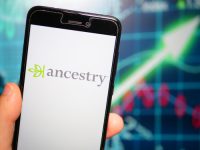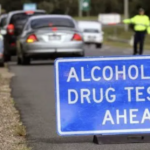Warning! Providing Your DNA to Ancestry Sites Could Make You a Suspect

Australians are once again being warned that law enforcement agencies are increasingly accessing genealogy databases such as Ancestry.com and My Heritage DNA in an attempt to generate suspects.
These genealogy companies use forensic material which is voluntarily provided by paying customers to generate DNA profiles, which are then stored on their databases indefinitely.
Genetics professor Dennis McNevin and researcher Dr Nathan Scudder published an article in the Australian Journal of Forensic Science earlier this year, explaining that genealogy agreements typically contain waivers which allow the companies to provide or even sell information to third parties, including police departments.
The authors warn that trawling through databases has already yielded false results in a number of cases, incorrectly linking customers and their family members to criminal offences.
Solving crime
But not all results have been false.
In April this year, the Golden State Killer was caught with the help of information obtained from a genealogy website known as GEDmatch.
The former police officer, who was responsible for sexual assaults and murders dating as far back as the 1970s, was identified through DNA provided by his relatives, which was used to establish the ‘probable cause’ required to arrest and interrogate him.
And while much has been made about the outcome of this case, it has also triggered debate about the ethics of using genealogy websites to identify potential suspects in crimes, including unsolved murders in Australia and abroad.
Public opinion
A recent peer-review study published in the Public Library of Science (PLOS) found that, despite the risks of false incrimination a majority of people surveyed supported police using DNA databases to identify suspects.
Of the 1,587 respondents, 79% supported police trawling genealogy websites for general law enforcement purposes, while 62% were in favour of the sites providing police with the genetic profiles of customers. 65% approved police setting up fake profiles on the sites to help them go through the sites.
The figure rose to 80% when respondents were asked whether the sites should be used to identify perpetrators of violent crimes, 78% sais they supported this use to identify perpetrators of crimes against children, 77% when it came to missing persons and 39% for nonviolent crimes.
Females were more likely to support the use of the sites than males.
But other variables, such as age, race, income and conviction history proved unremarkable.

Privacy risks
Apart from falsely incriminating suspects, there are concerns about DNA profiles being sold to private companies to facilitate projections regarding risk.
For example, DNA information could be used by insurance companies to determine the likelihood of a person getting certain illnesses, which could affect the assessment of premiums and the like.
There are even more sinister ways to misuse such information, such as to discriminate against people based on race.
Such concerns have led Civil Liberties Australia to call on the Federal Government to enact legislation to regulate the use of DNA information.
A hidden tool
According to bioethicist Benjamin Berkman, the use of genealogy websites for law enforcement purposes is becoming increasingly common, although this is not being publicised for fear of criticism.
Berkman explains that there is vacuum of guidelines when it comes to the use of these sites, echoing concerns the information can be used for purposes not contemplated by those who surrender their most personal life-code.
Berkman has called for codes of conduct and greater regulation, as well as some degree of transparency by law enforcement agencies when it comes to using DNA as an investigative tool.







